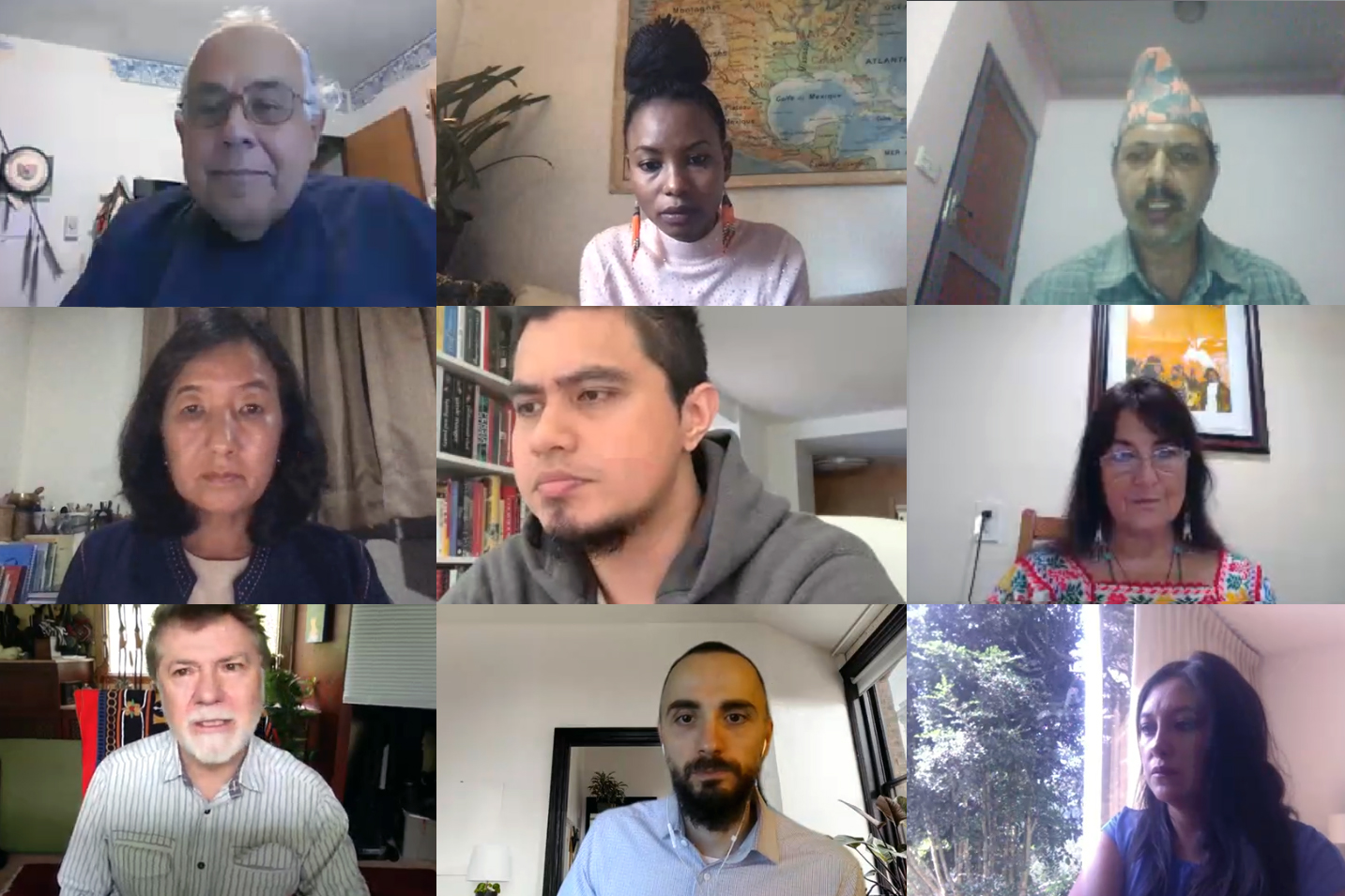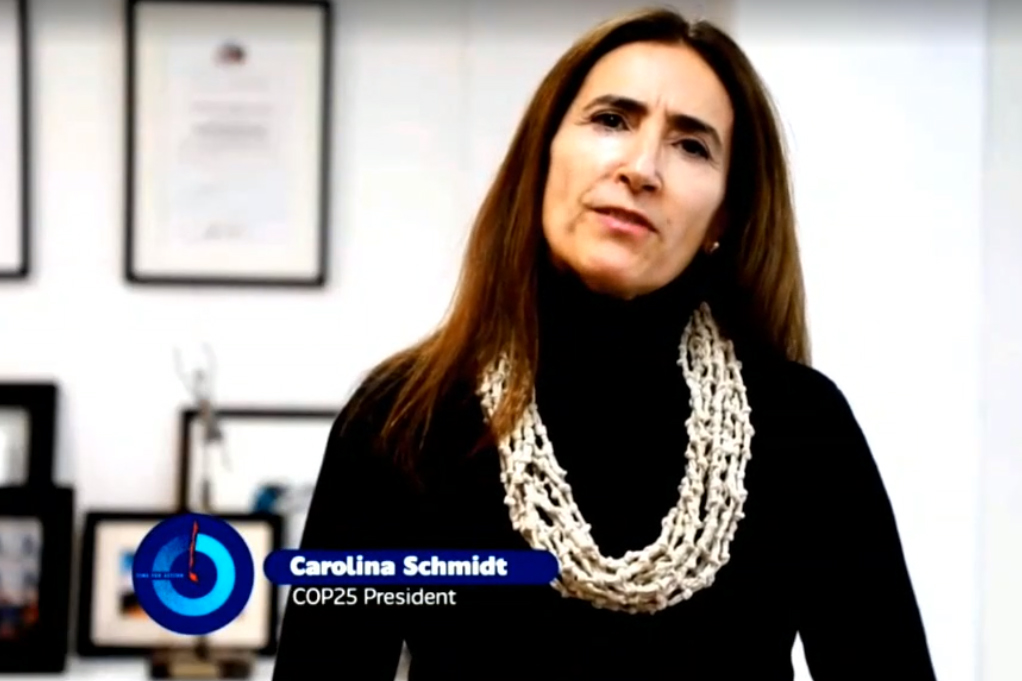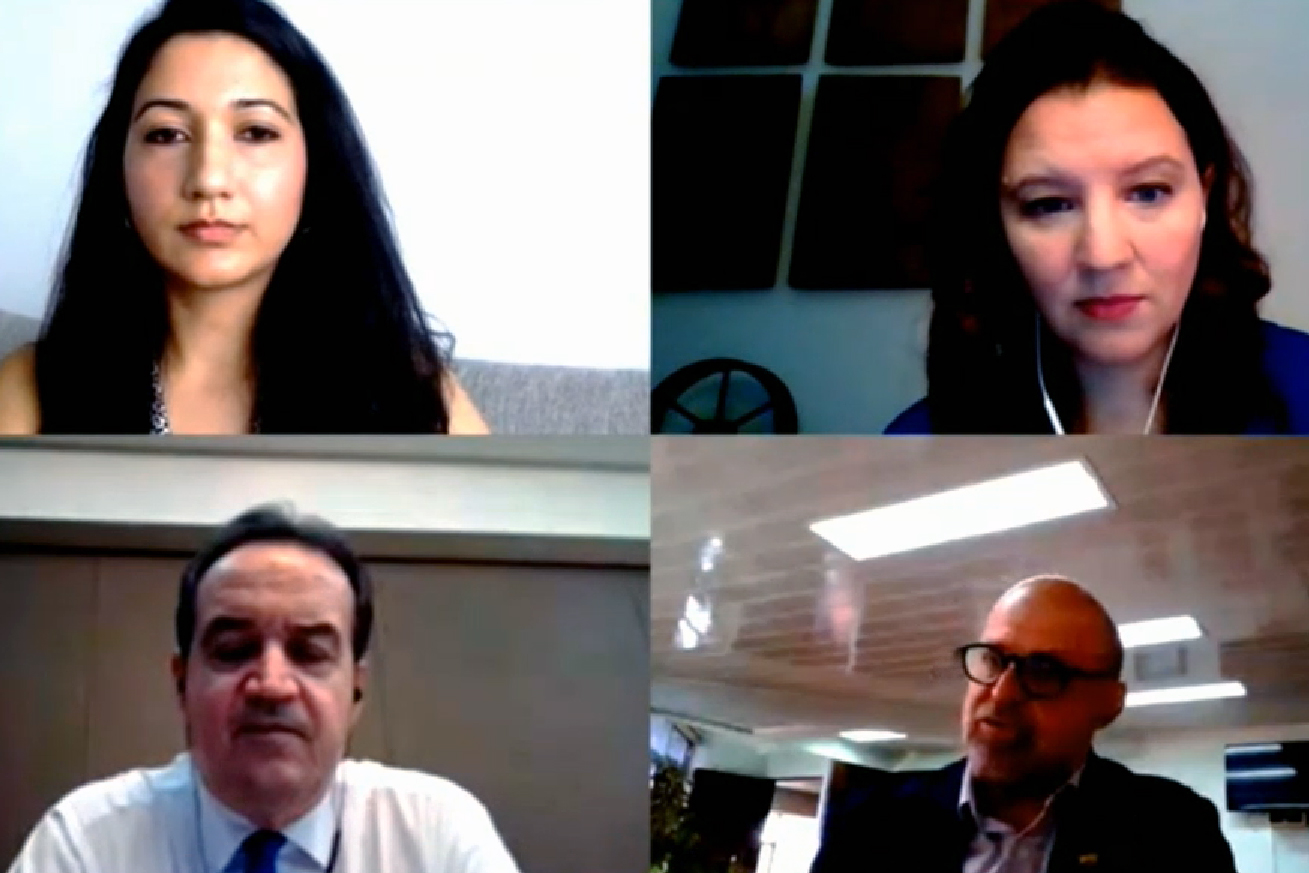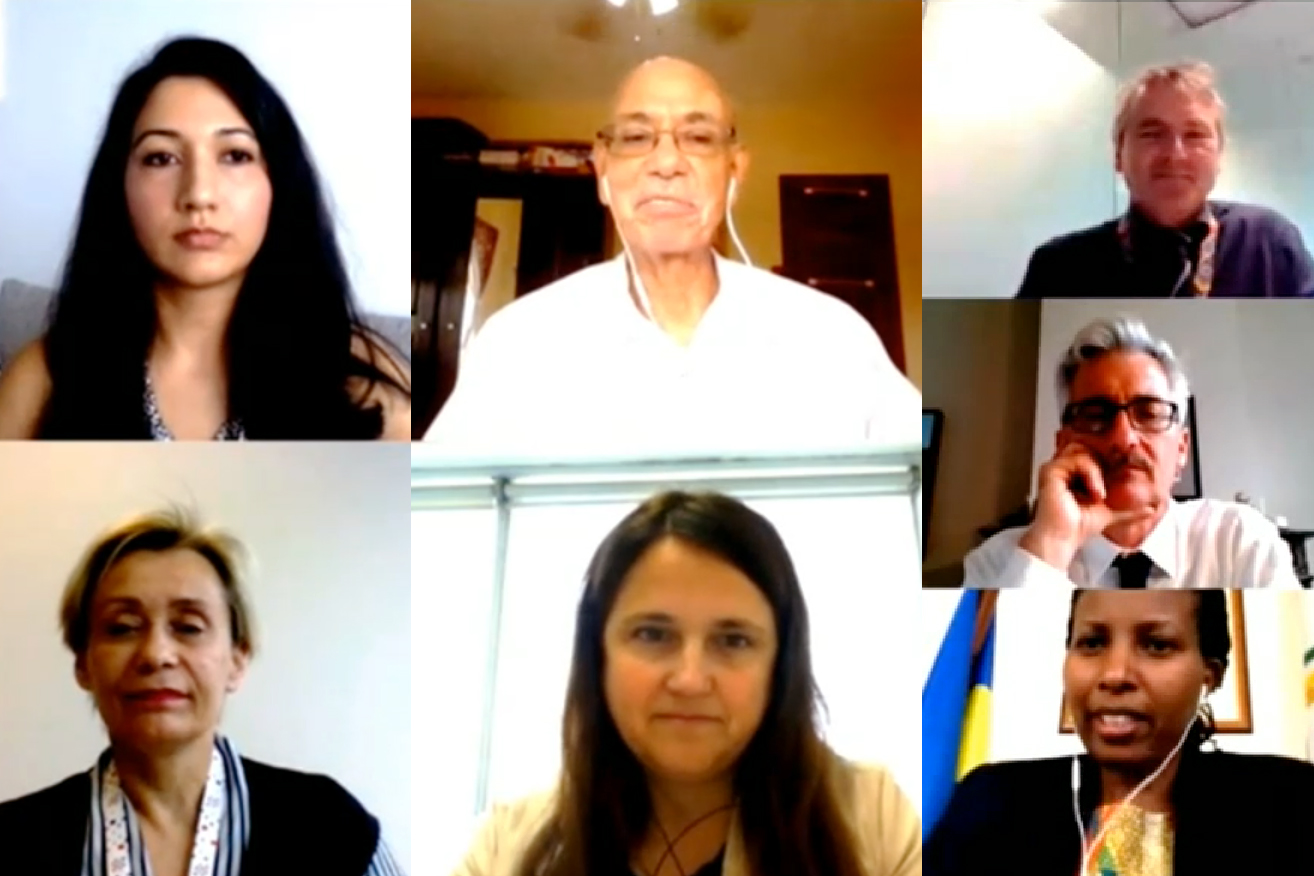June Momentum for Climate Change
1-10 June 2020 | Online
Virtual Events Covered on Tuesday, 9 June 2020
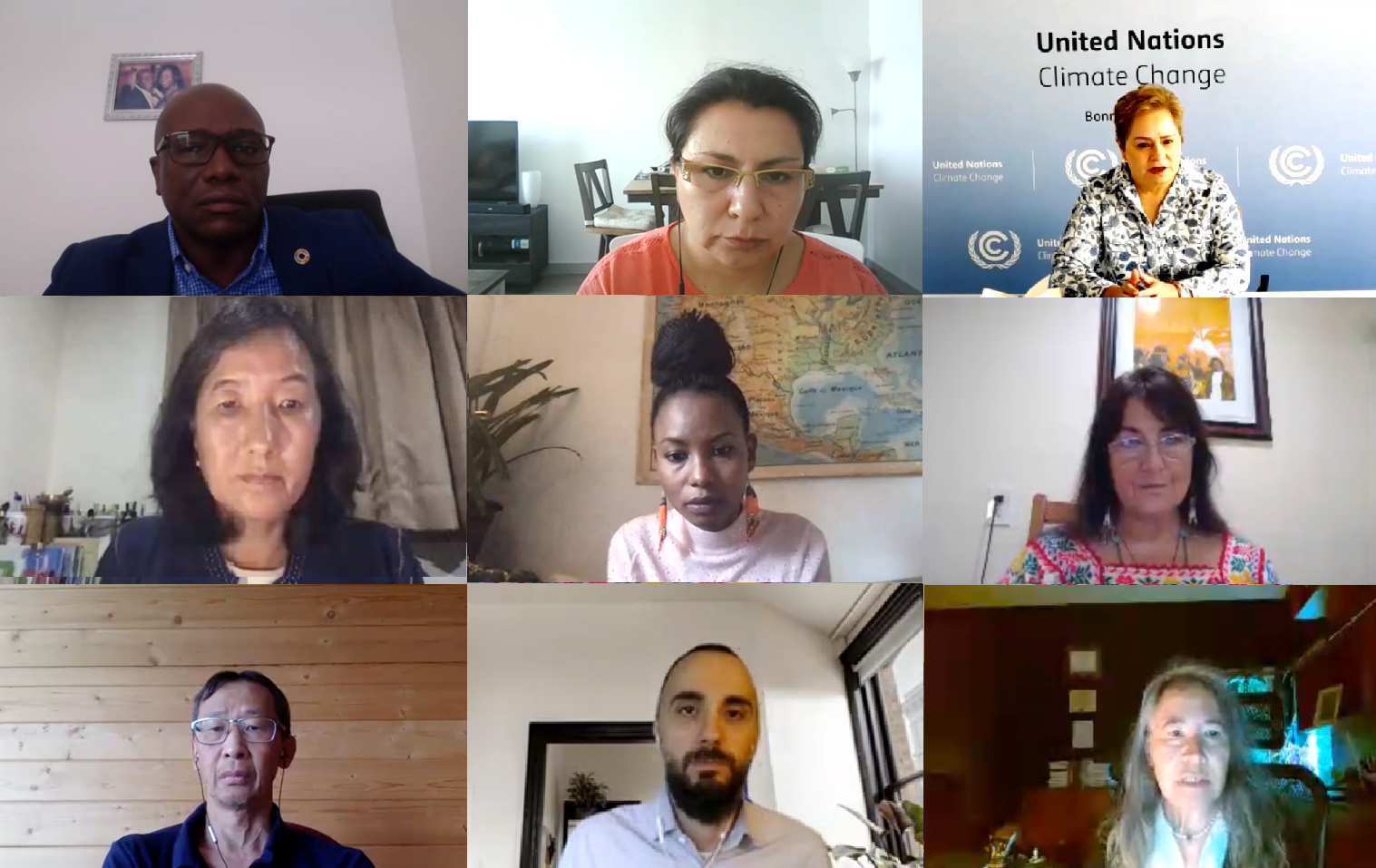
The June Momentum for Climate Change, a series of virtual events organized by the UN Framework Convention on Climate Change (UNFCCC) Secretariat, continued Tuesday.
Where do we stand with NDCs: Enhancing action on climate change in 2020
Shyla Raghav, Conservation International, moderated the event, aimed to share experiences with new and updated nationally determined contributions (NDCs). UNFCCC Executive Secretary Patricia Espinosa stressed the importance of submitting new or updated NDCs in 2020 and suggested combining climate change actions with COVID-19 recovery.
Carolina Schmidt, Minister of Environment, Chile, and COP 25 President, encouraged parties to present enhanced NDCs in 2020 and said the “Race to Zero” campaign launched last week demonstrates commitment by non-party stakeholders.
Carlos Manuel Rodríguez, NDC Partnership, reported that 41 partners are providing USD 40 million to support 65 countries with enhancing the quality and ambition of their NDCs, mainstreaming NDCs into national plans, and preparing investment plans.
Yannick Glemarec, Executive Director, Green Climate Fund (GCF), outlined the Fund’s current priorities: ensuring continuation of the USD 5.6 billion portfolio; leveraging the Readiness Programme to enable development of green, resilient economic measures; facilitating access to the Project Preparation Facility; and delivering on the existing project pipeline.
Cassie Flynn, UN Development Programme, said the Programme’s “Climate Promise” has supported 111 countries in NDC enhancement, noting that NDCs are increasingly seen as building blocks for green recovery.
In the discussion, panelists explained how international support can drive more ambitious NDCs, including through: generating quantitative data on the economic benefits of climate actions; demonstrating synergies with economic resilience; and using innovative financing.
Three parties that have submitted updated or revised NDCs in 2020 shared lessons. Carolina Urmeneta (Chile) reported that Chile’s NDC contains an absolute carbon budget for 2020-2030 and a just transition strategy. She highlighted dialogue and inputs from state and non-state actors, engaging the Ministry of Finance in a cost-effectiveness analysis, and political commitment.
Henrik Hallgrim Eriksen (Norway) said Norway raised its mitigation target to 50-55% from 1990 levels by 2030 and followed the guidance from Katowice. He called for taking the Paris Agreement “ambition cycle” and science seriously and noted that expectations of cooperation with the EU and Iceland informed preparations.
Juliet Kabera (Rwanda) said her country’s NDC revision, which contains a 38% emissions reduction by 2030 compared to business-as-usual, was enabled by political will. She emphasized embedding NDCs in national strategies, clear targets on adaptation and resilience, and continued sectoral dialogue.
Carlos Fuller, for the Alliance of Small Island States (AOSIS), reported that, despite COVID-19, AOSIS members will submit ambitious NDCs in 2020. He identified the need for further support for developing and implementing NDCs.
Visnja Grgasović and Jacob Werksman (EU) said the EU has submitted its long-term low greenhouse gas emission development strategy and will update the EU’s NDC in 2020, proposing an NDC with an emissions target 50-55% below 1990 levels by 2030 and a strong social pillar.
In the discussion, panelists shared plans to mobilize domestic finance for NDC implementation, including green bonds, green funds, leveraging private financing, and mainstreaming climate change into all development projects.
John Murton (UK), COP 26 Climate Envoy, said the UK will be an “unapologetic cheerleader” regarding ambition, noting the UK has doubled its international climate finance commitment. He encouraged countries that have submitted “unambitious NDCs” in recent months to resubmit more ambitious NDCs before COP 26.
Local Communities and Indigenous Peoples Platform Facilitative Working Group stakeholder dialogue
Roberto Mukaro Borrero, Taíno, opened the event with a traditional song. The Local Communities and Indigenous Peoples Platform (LCIPP) Facilitative Working Group (FWG) Co-Chair Pasang Dolma Sherpa moderated the event, which delivered updates on activities conducted under the LCIPP workplan and heard suggestions.
Subsidiary Body for Scientific and Technological Advice (SBSTA) Chair Tosi Mpanu-Mpanu (Democratic Republic of the Congo) said COVID-19 has accelerated the need to transform our interactions with nature and increased the LCIPP’s relevance. UNFCCC Executive Secretary Espinosa stressed there is a need to address climate change holistically and said the LCIPP ensures the inclusion of local and indigenous voices, which is now more important than ever.
Dolma Sherpa reported that the implementation of the workplan is progressing despite COVID-19. FWG members reported on progress on various activities.
Andrea Carmen identified challenges in organizing regional meetings with traditional knowledge holders, which often need to take place face-to-face, and reported on a proposal to delay implementation by one year.
Dalee Sambo Dorough said preparations for a training workshop on individual and collective human rights of indigenous peoples are underway.
On a mapping of good practices on participation in climate change-related bodies, Elias Abourizk said submissions (due in September 2020) will inform the development of a technical paper.
On a mapping of UNFCCC policies relevant for indigenous peoples and local communities, Hindou Oumarou Ibrahim shared plans to generate an exhaustive inventory based on, inter alia, a digital survey and a call for submissions.
Rodion Sulyandziga explained plans to deliver a synthesis document and an online tool on funding opportunities within the UN system on the LCIPP web platform.
Event participants then shared information and suggestions with the FWG, including on: relevant work under the Convention on Biological Diversity, including a draft decision on the future participation of indigenous peoples; and ensuring accessibility to documentation.
Participants also highlighted: recognition of indigenous peoples’ rights; mobilizing indigenous communities to protect ecosystems; community-based natural resource management systems; and an emphasis on eliminating racism and discrimination.
They lamented the COVID-19 pandemic has allowed an increase in extractive industry activities and deforestation in some countries, and that indigenous communities are impacted by various crises.
Dolma Sherpa thanked participants and called for maintaining momentum to enable the LCIPP to make positive contributions and implement its workplan.
Images from the Meeting
Resources for the United Nations Framework Convention on Climate Change (UNFCCC)
IISD ENB/ENB+ Meeting Coverage
- 52nd Session of the Intergovernmental Panel on Climate Change (IPCC-52), 24-28 February 2020, Headquarters of the UN Educational, Scientific and Cultural Organization (UNESCO), Paris, France
- Chile/Madrid Climate Change Conference, 2-15 December 2019, Madrid, Spain
- African Climate Risks Conference (ACRC) 2019, 7-9 October 2019, Addis Ababa, Ethiopia
- UN Summits Week 2019, 23-27 September 2019, UN Headquarters, New York
- IPCC-51, 20-23 September 2019, Principality of Monaco
- Latin America and Caribbean Climate Week 2019, 19-23 August 2019, Salvador de Bahia, Brazil
- IPCC-50, 2-7 August 2019, Geneva, Switzerland
- Bonn Climate Change Conference - June 2019, 17-27 June 2019, Bonn, Germany
- IPCC-49, 8-12 March 2019, Kyoto, Japan
- ENB Coverage of Climate Change Meetings
IISD Resources
- Subscription Page for IISD Reporting Services Peer-to-Peer Mailing Lists (including CLIMATE-L, SDG, OCEANS-L, BIODIVERSITY-L, and Regional Updates)
- SDG Knowledge Hub - An Online Resource Center for News and Commentary Regarding the Implementation of the United Nations’ 2030 Agenda for Sustainable Development, including all 17 Sustainable Development Goals (SDGs)
- Linkages Update - International Environment and Sustainable Development News

